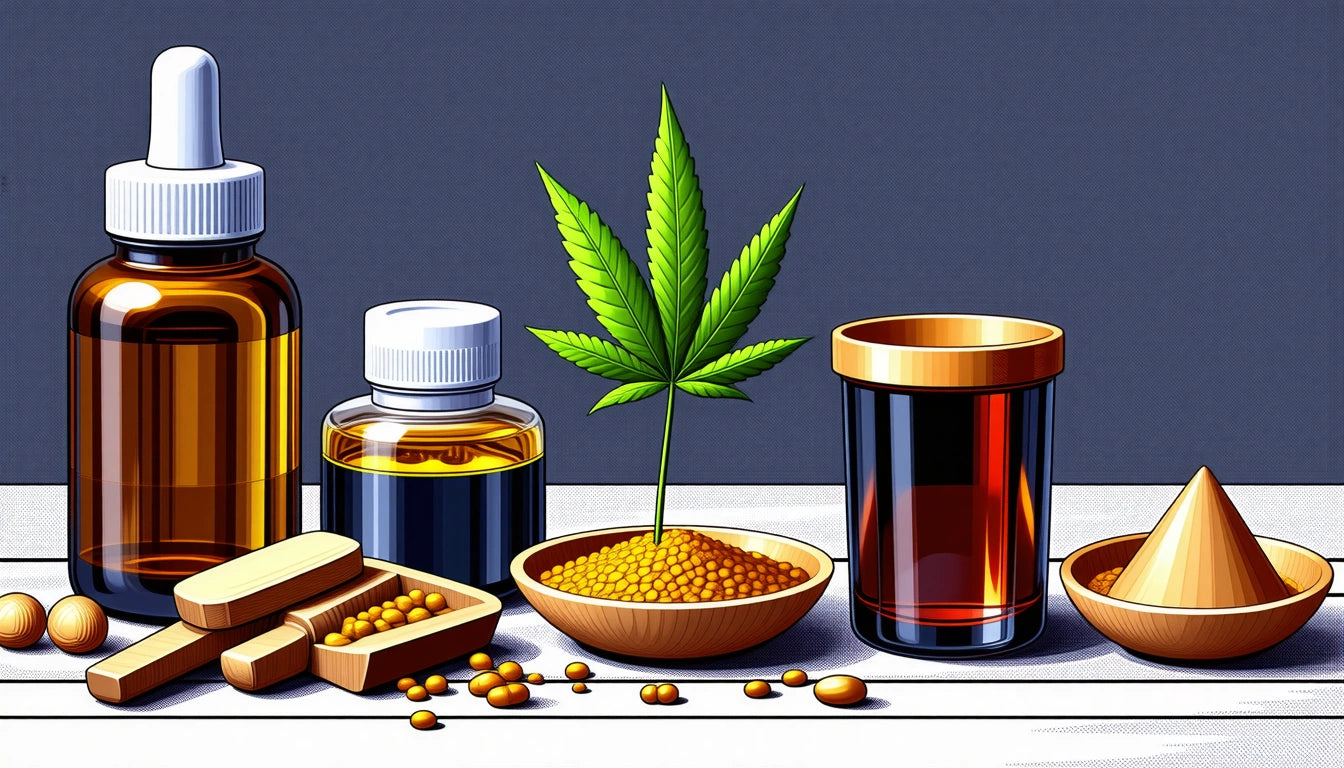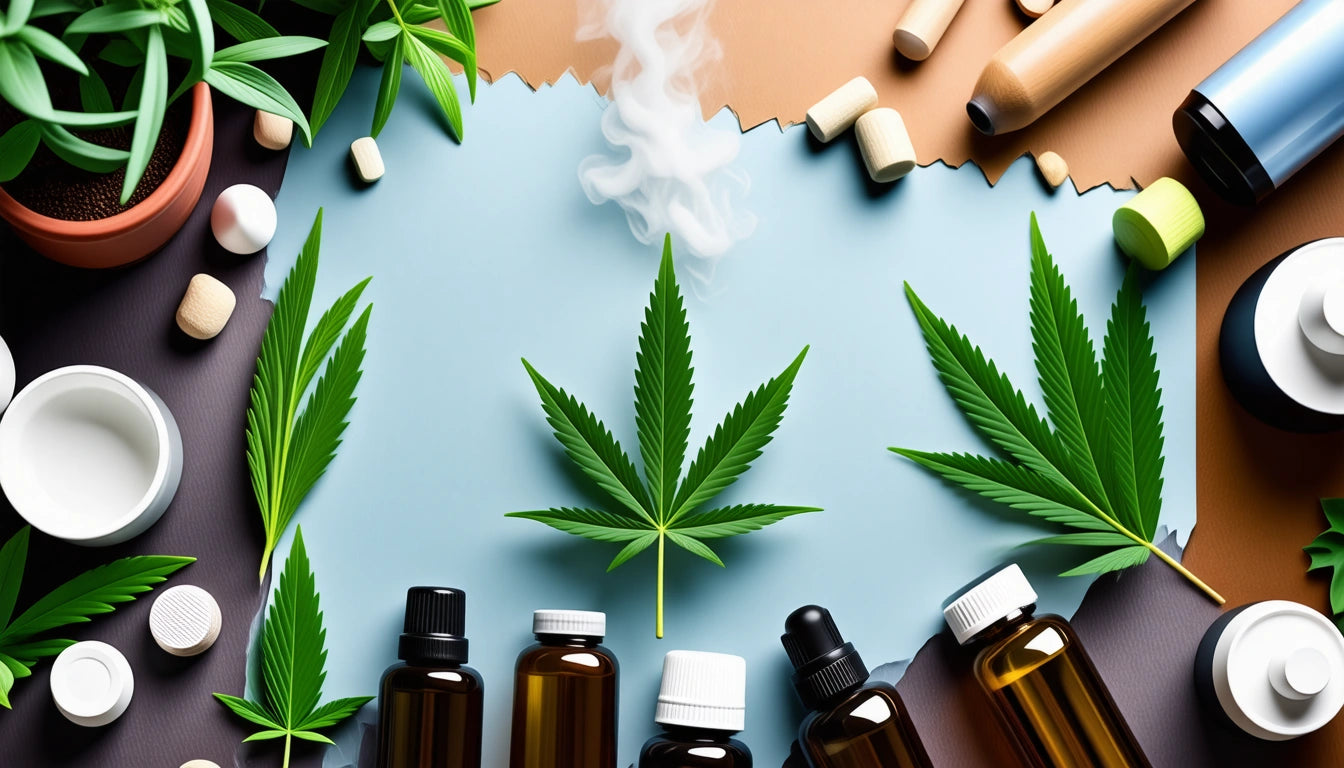Does THC Wax and Oil Expire or Go Bad?
Cannabis concentrates like THC wax and oil have become increasingly popular for their potency and versatility. However, many users wonder about their shelf life and whether these products can expire or deteriorate over time. Understanding proper storage and identifying signs of degradation can help preserve your investment and ensure a safe consumption experience.
Shelf Life of THC Concentrates
THC concentrates do not have an infinite shelf life, but when stored properly, they can remain potent and usable for considerable periods. Most experts agree that:
- Well-stored THC wax can maintain quality for 1-2 years
- Oils and cartridges typically last 6 months to 1 year
- Live resins and more terpene-rich concentrates may degrade faster (6-12 months)
Unlike food products, cannabis concentrates don't typically become dangerous when they age, but they do lose potency and quality over time. The question of does weed go bad applies differently to concentrates than flower, as the extraction process removes many of the plant materials that would otherwise decompose.
Signs Your THC Wax or Oil Has Gone Bad
While concentrates don't "expire" in the traditional sense, they can certainly degrade. Here are indicators that your THC wax or oil may have deteriorated:
Visual Changes
Fresh concentrates have a consistent color and texture. If you notice significant darkening, clouding, or separation in oils, these are signs of degradation. For wax products, excessive dryness, unusual crystallization, or a powdery texture can indicate aging.
Aroma and Flavor Alterations
One of the first properties to degrade in concentrates is the terpene profile. If your product has lost its characteristic smell or tastes unusually harsh or bland, the terpenes have likely evaporated or oxidized.
Consistency Changes
Fresh THC wax has a specific consistency depending on its type (shatter, budder, etc.). If shatter becomes tacky or budder becomes overly dry, these changes suggest degradation.
Factors Affecting Concentrate Longevity
Several environmental factors can accelerate the degradation of THC wax and oil:
Light Exposure
UV light is particularly damaging to cannabinoids. Direct sunlight or even bright indoor lighting can break down THC and other compounds, reducing potency and altering effects.
Temperature Fluctuations
Consistent cool temperatures help preserve concentrates. Heat accelerates terpene evaporation and can cause physical changes in the product's structure.
Air Exposure
Oxygen causes oxidation, which degrades both cannabinoids and terpenes. The more air contact your concentrate has, the faster it will degrade.
Humidity
Excessive moisture can promote mold growth, particularly in concentrates that haven't been fully purged of water during production.
Proper Storage Techniques
To maximize the shelf life of your THC concentrates:
- Store in airtight, opaque containers (silicone or glass)
- Keep in a cool, dark place (refrigeration is ideal for long-term storage)
- Use clean tools when handling to prevent contamination
- Consider vacuum sealing for very long-term storage
For precise measurement when portioning concentrates for storage, accurate digital scales designed for cannabis products can help ensure you're storing appropriate amounts in each container, preventing unnecessary air exposure to your main supply.
If you're concerned about consumption safety with older concentrates, it's worth reviewing safety information about THC wax to understand potential risks.
CRC Wax Concerns
When discussing concentrate quality and safety, many consumers ask why is CRC wax bad or potentially problematic. Color Remediation Column (CRC) technology filters concentrates through various media to remove impurities and unwanted color. While this can improve appearance, some concerns include:
- Potential for filtering out beneficial compounds along with impurities
- Possibility of filter media contamination if not properly processed
- Difficulty in visually assessing quality since natural color indicators are removed
CRC wax itself isn't inherently bad, but the technology can sometimes be used to make lower-quality starting material appear more premium. This process doesn't necessarily impact shelf life, but it's worth considering when purchasing concentrates.
Preserving Potency and Quality Long-Term
Beyond basic storage techniques, concentrate enthusiasts can take additional steps to maintain product quality:
Consider breaking down larger quantities into smaller portions for regular use, keeping the majority in cold storage. This approach minimizes how often your main supply is exposed to air and temperature changes. For those wondering how long does THC wax stay in your system, it's worth noting that degraded products may produce less predictable effects but generally follow similar metabolic pathways.
When comparing different concentrate types, wax vs. traditional flower products typically offer longer shelf stability due to reduced plant material, though they still require proper storage.
For the best long-term results, treat your concentrates like fine wine or craft spirits. Store them properly, monitor their condition regularly, and understand that even with perfect storage, all cannabis products eventually degrade. Purchasing quantities you can reasonably consume within the optimal timeframe ensures you'll experience the product as intended by its producer.











Leave a comment
All comments are moderated before being published.
This site is protected by hCaptcha and the hCaptcha Privacy Policy and Terms of Service apply.